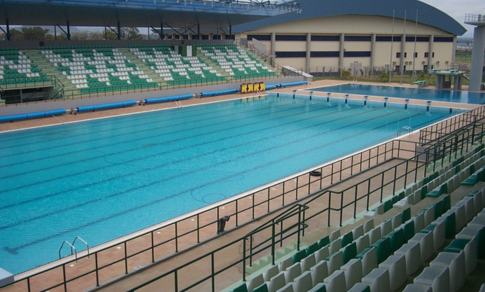In 1973, the Federal Republic of Nigeria, led by Gen. Olusegun Obasanjo, inaugurated the National Stadium in Lagos with a capacity of 55,000 spectators, later reduced to 45,000. One feature was an Olympic-size swimming pool for 1,500 spectators.
The stadium was built for the All African Games in 1973 but lost its vision over time. For three decades, it hosted various competitions, but with the capital move to Abuja, a new stadium was needed. Obasanjo, who inaugurated the Lagos stadium, commissioned the Abuja National Stadium 30 years later for the All African Games.
Renamed MKO Abiola Stadium, it became a symbol of African sports. MKO Abiola contributed N11m to its construction in 1989. The stadium, commissioned by Obasanjo, hosted the eighth All-Africa Games in 2003.
The MKO Abiola Stadium, Abuja, was initially a source of national pride but eventually faced neglect. Costing $360m, it was one of Africa's most expensive stadiums, built by Julius Berger. It included Package A with a 60,491-seat main bowl, presidential suite, corporate suites, turnstiles, media facilities, scoreboards, floodlights, and a helipad.

Alongside is a 2,000-seat swimming pool, an upgrade of the National Stadium's pool. Despite modern equipment, poor management post-2003 led to neglect. The pool, now in a deplorable state, lacks maintenance, hygiene, and waste management, with untreated water and infestations.
In 2022, a tragedy occurred when a 13-year-old drowned due to inadequate supervision, leading to the pool's shutdown. The decay of sporting infrastructure in Nigeria affects athletes, pushing some to train abroad. The country's sports prospects suffer due to insufficient facilities and maintenance issues.
The MKO Abiola Stadium Swimming pool remains closed, awaiting rescue from further damage, potentially requiring intervention from the current Minister of Sports, Owan-Enoh.









ADD A COMMENT :